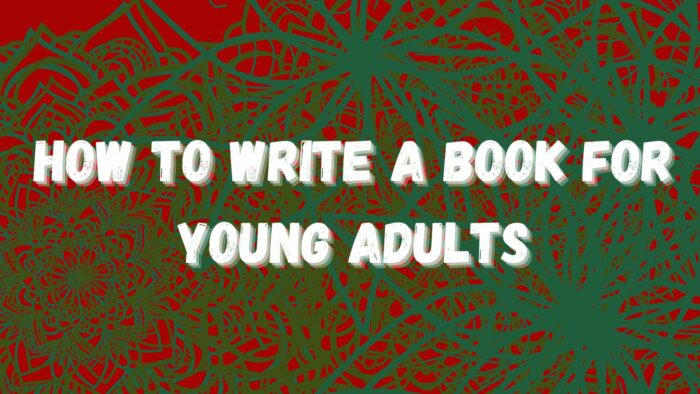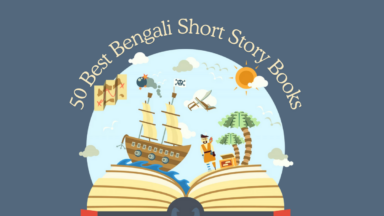
How To Write A Book For Young Adults: The Best Suggestion In 2023
How To Write A Book For Young Adults? Are you an aspiring author with a passion for writing stories that captivate the hearts and minds of young adults? Look no further! In this guide, we will take you on a journey through the art of writing a book specifically tailored for the young adult audience.
Whether you’re exploring the realms of fantasy, delving into contemporary issues, or unraveling thrilling mysteries, we’ll equip you with the essential tools and insights to craft a compelling narrative that resonates with young readers. Embark on this adventure with us as we dive into the key elements that make young adult literature shine.
From developing relatable characters and crafting a gripping plot to exploring themes that resonate with the adolescent experience, we’ll unravel the secrets behind successful young adult storytelling. Get ready to unleash your creativity, harness your imagination, and embark on a writing journey that will captivate the hearts and minds of young readers everywhere.
How to Write a Book for Young Adults: Making The Plan
If you want to know how to write a book for Young Adults, first of all, before doing anything just make a plan and always stick with the plan until you have found the stream inside you that can make a story out of anything. Here are the steps that you should follow if you are writing a book for young adults for the first time.
- Start by brainstorming ideas for your story.
- Create relatable and engaging characters.
- Develop a captivating plot with conflict and resolution.
- Use age-appropriate language and themes.
- Consider the interests and concerns of young adult readers.
- Edit and revise your manuscript for clarity and coherence.
- Seek feedback from young adult beta readers.
- Research the young adult book market and publishing options.
- Submit your manuscript to literary agents or publishers.
Continue honing your writing skills and learning from feedback.
How to Write a Book for Young Adults
Writing a book for young adults requires a unique approach to storytelling that appeals to their specific interests and experiences. Here are some guidelines to help you craft a compelling book for this audience:
Firstly, understand your target audience. Young adult readers are typically between the ages of 12 to 18, so it’s important to write with their interests, concerns, and emotions in mind. Consider the topics and themes that resonate with this age group,
such as self-discovery, identity, relationships, and navigating the challenges of adolescence. This will help you create relatable characters and storylines that capture their attention. Next, develop a strong and engaging protagonist. Young adult readers often connect with characters who reflect their experiences and struggles.
Your main character should be multidimensional, with flaws and strengths that readers can identify with. Give them relatable goals and motivations, and allow them to grow and change throughout the story. This will help young adult readers become emotionally invested and forge a connection with your book.
When it comes to plot, focus on pacing and tension. Young adult readers often appreciate fast-paced stories that keep them engaged from beginning to end. Create a compelling hook at the beginning of your book that grabs their attention and makes them want to keep reading.
Introduce conflicts and challenges that keep the story moving forward, and build suspense to keep readers on the edge of their seats. However, also allows for quieter moments of reflection and character development to add depth to your story.
In terms of writing style, keep it accessible and relatable. Young adult readers appreciate clear and straightforward language, so avoid excessive jargon or overly complex sentence structures. Use dialogue to bring your characters to life and make your book feel more immediate and engaging.
Avoid talking down to your readers; instead, treat them as intelligent and discerning individuals who can appreciate complex themes and ideas. Lastly, be authentic and true to yourself as a writer. Young adult readers appreciate honesty and authenticity. Don’t try to imitate popular trends or write what you think will sell.
Instead, write the story that you are passionate about and that speaks to your own experiences and values. Young adult readers can sense when a story is genuine, and they will appreciate the authenticity and emotional resonance that comes from an author who writes from the heart.
How Can I Develop Realistic Young Adult Characters?
Creating realistic young adult characters is crucial to engaging your readers. Here are some tips to help you develop characters that feel authentic:
Firstly, observe and understand the young adults around you. Pay attention to their behavior, mannerisms, speech patterns, and interests. This will help you create characters that feel genuine and relatable. Talk to young adults, listen to their stories, and try to understand their perspectives. This research will provide valuable insights into their experiences and help you represent them accurately in your writing.
Secondly, give your characters depth and complexity. Avoid stereotypes and one-dimensional portrayals. Young adults, like any other age group, are multifaceted individuals with a range of emotions, aspirations, and flaws. Show the different facets of your characters’ personalities and explore their inner struggles and conflicts. This will make them more relatable and allow readers to connect with them on a deeper level.
Thirdly, consider the diversity of young adult experiences. Young adult readers come from various backgrounds, cultures, and identities. It’s essential to include diverse characters in your book to reflect the reality of the world. Represent a range of races, ethnicities, sexual orientations, gender identities, and abilities. However, approach diversity with care and respect, doing thorough research and consulting sensitive readers to avoid harmful stereotypes or misrepresentation.
Lastly, show growth and development in your characters. Young adults are going through a period of transition and self-discovery. Allow your characters to learn, change, and grow throughout the story. This can be through overcoming challenges, discovering their passions, or developing deeper relationships with others. This growth will make your characters more relatable and provide a sense of progression in your book.
What Are Some Popular Themes In Young Adult Literature?
Youthful adult literature often explores various themes that resonate with its readers. Here are some popular themes you can consider incorporating into your book:
1. Coming of Age: Young adult readers are often drawn to stories that depict characters’ journeys of self-discovery and personal growth as they navigate the challenges of adolescence and transition into adulthood.
2. Identity and Self-Exploration: Identity formation is a significant aspect of the young adult experience. Books that delve into questions of self-identity, including cultural, sexual, and gender identities, can resonate strongly with this age group.
3. Relationships and Romance: Young adult readers are fascinated by stories that explore the complexities of friendships, family dynamics, and romantic relationships. These themes allow them to explore emotions and social dynamics they may be experiencing themselves.
4. Social Issues: Young adult literature often tackles social issues such as bullying, mental health, discrimination, and societal pressures. These stories can provide young readers with a sense of validation, empathy, and understanding.
5. Adventure and Fantasy: Many young adult books feature fantastical elements, whether it’s through magical worlds, supernatural abilities, or epic quests. These stories offer escapism and allow readers to explore their imagination.
6. Resilience and Overcoming Challenges: Books that showcase characters facing and overcoming obstacles can inspire and empower young adult readers. These stories highlight the strength and determination needed to navigate life’s difficulties.
7. Loss and Grief: Exploring themes of loss and grief can help young adult readers process their own emotions and experiences. These stories can provide comfort, reassurance, and guidance during difficult times.
8. Science Fiction and Dystopia: Young adult literature frequently incorporates science fiction and dystopian elements, allowing readers to contemplate the future and explore complex societal and ethical issues.
Remember, these themes are not exhaustive, and your book can certainly explore other topics. The key is to choose themes that resonate with your audience and allow for meaningful exploration and reflection.
How to write a book for Young Adults is a unique and exciting endeavor that requires careful consideration and planning. By following a few key steps, you can create a captivating story that will resonate with this specific audience.
First and foremost, it is crucial to understand the interests and concerns of young adults. Take the time to research current trends, popular themes, and the issues that matter most to this age group. By addressing these topics in your book, you can create relatable characters and storylines that will captivate your readers.
Secondly, focus on creating engaging and well-developed characters. Young adult readers are drawn to characters they can connect with and root for. Develop complex personalities and give them relatable struggles and motivations. This will help your readers become emotionally invested in the story and keep them turning the pages.
Lastly, pay attention to the pacing and structure of your book. Young adult readers often prefer fast-paced narratives that keep them engaged from start to finish. Break up the story into shorter chapters or sections to maintain momentum and create natural stopping points. This will ensure that your readers stay hooked and eagerly anticipate what happens next.
In conclusion, how to write a book for Young Adults requires an understanding of their interests, creating relatable characters, and maintaining a fast-paced narrative. By following these guidelines, you can craft a book that will captivate and resonate with young adult readers, leaving a lasting impact on their reading experience.
Related Posts

50 Best Bengali Short Story Books
Are you a fan of short stories? Look no further! In this article, we h...

50 Best Bengali History Books
In this article, we will present a curated list of the 50 best Bengali...

Why Did Bangladesh Separate From Pakistan: The Best Tailored Discussion 2023
Why Did Bangladesh Separate From Pakistan is a significant event in th...

Operation Searchlight: The Worst Part In The History Of Bangladesh 1971
Operation Searchlight, a military crackdown launched by the Pakistani ...
Write your thoughts in our old fashioned Comment
EBook Comment/Review Policy. We strongly recommend leaving comments, however comments with abusive words, bullying, personal attacks of any type will be moderated.
Review How To Write A Book For Young Adults: The Best Suggestion In 2023.